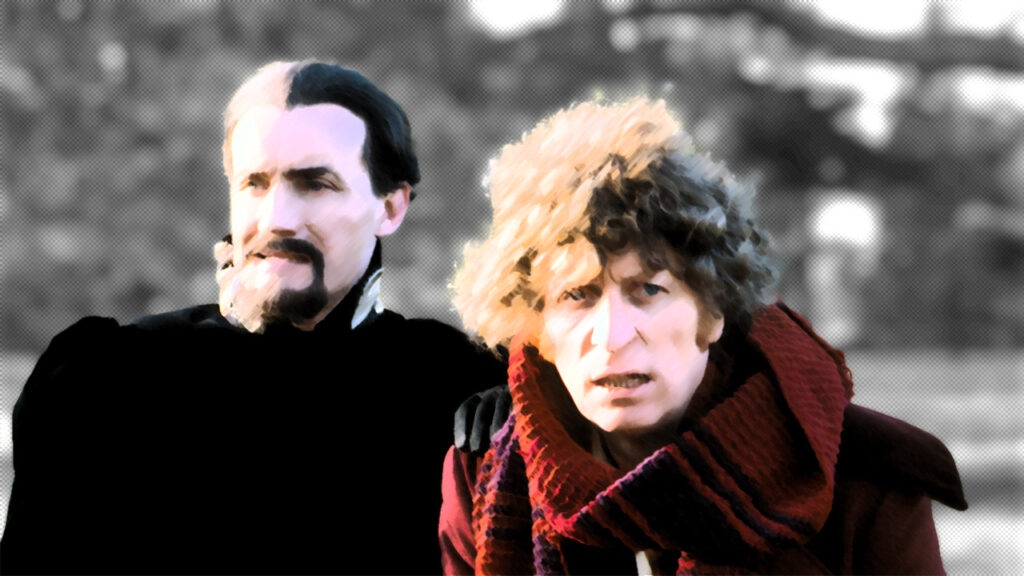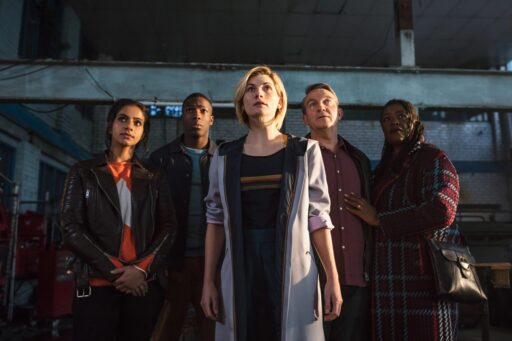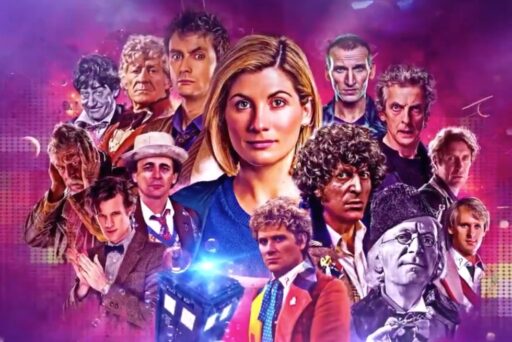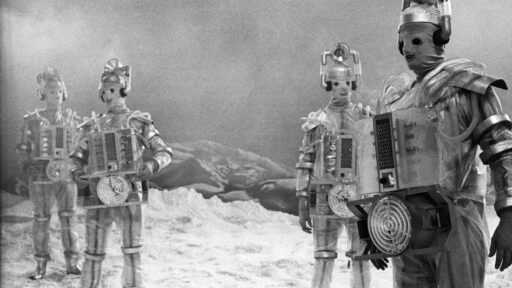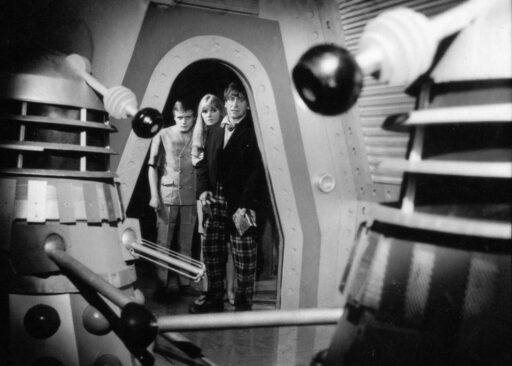I have an inescapable fondness for Logopolis that I’m sure clouds my judgment of the story. I would have been 8 (coming up for 9) years old when the story first aired and while I’d been watching Doctor Who my entire life Tom Baker was the only Doctor I had any memories of. His departure, which I knew was coming although I no longer remember how I knew this, was a seismic event and this story felt different from the opening moments.

Christopher Bidmead, in his role as script editor was keen to steer the show towards more scientific stories and you can see what the concept looks like here with references to entropy and the “science” of block transfer computation, plus the excellent demonstration of what recursion is (Seeing the TARDIS somehow appearing inside the TARDIS blew my tiny mind on first viewing. The whimsy and fantasy is still present in many aspects but things aren’t played for laughs any more. Even at my young age when first watching this, I was aware of the gloomier tone of the whole series, and this story in particular had a sense of change and impending doom to it that I wasn’t used to.
The opening sequence where we get the laughter of the Master as he needlessly murders the policeman tells us that bad things are coming. The Doctor and Adric’s talk in the cloisters serves not only to introduce the Cloister Bell (conveniently as it immediately becomes important!) but furthers that sense of gloom and imminent endings. It’s interesting that Adric’s interactions with Baker here are relatively free of the annoying elements that I and others associate with the character. It’s not that Bidmead handles the character noticeably better, it’s just that the relationship between 4 and Adric seems to be more Teacher/student than the weird snarky interactions between 5 and Adric.
This serial is also our first introduction to the character of Tegan and it seems to me that while still a “mouth on legs” the character is less abrasive than she would become in later seasons. From the outset she is stridently independent but not aggressively so and her character displays a basic level of competence when faced with the incomprehensible.
Compared to modern doctor who this is downright sluggish and even for Classic Who it’s quite sedate in its pacing. Did we really need so many shots of the Master’s TARDIS changing shapes and moving location? Not really once or at most twice would have done, so there’s definitely some filler here. But, the story emphasizes atmosphere and that slow build, carefully laying out all the elements of the noose that will eventually tighten around the Doctor’s neck. In that regard I think it’s a well structured story.
While I applaud Bidmead’s efforts to reintroduce some science into what had become a full on fantasy series let us be very clear about one thing, Block Transfer Computation is magic disguised as science. It’s quite a good disguise admittedly, but just because they print some stuff out on a dot-matrix printer and it looks like a programming language, that doesn’t make it science. I really like the visualization of Logopolis though, it looks and feels like an alien culture, one with an ascetic bent which fits once we find out what the Logopolitan’s real purpose is.

Speaking of spartan we should probably address how death is handled in this story. First there is Tegan finding out that her Aunt is dead and the Doctor’s rather cursory acknowledgment of the situation. Admittedly he is a little distracted by his own impending death, and was never the most empathic of Doctors, but still that’s a bit brusque. There’s also Nyssa first discovering that her father has been killed and his body stolen by the Master, which is then topped by the destruction of her entire planet and everyone she knows. Each of these moments gets only seconds of attention before we move on with the plot. I’m not much of a fan of the way modern Who often excessively milks the emotional moments but this story can come off as clinical at times to say the least.
Watching this story again I’m left wishing that Baker and Ainley got more opportunities to play against each other as the two bounce off one and other in such an entertaining manner. It has a lot of the feel of Delgado and Pertwee, though this Master is clearly several degrees more insane. It does seem very appropriate that not only does the Master finally manages to kill the Doctor, something he’s been trying to do since he was first introduced, but also that it happens at a radio telescope which is something that features in the Master’s first story too.
The Doctors death here is strangely anti-climactic after all the portents of doom, not to mention the mysterious Watcher (“it was the doctor all along”). In the end he simply falls to his death, it’s a big fall certainly but then he just lays there and dies. This is not the death of a superhero and it’s a very lowkey way for the longest lasting and arguably most popular Doctor to date to go out. As an ending to Series 18 I think it’s perfect as it embodies many of the themes and much of the style of that season, as an ending to the Fourth Doctor’s era as a whole, I suspect it’s not how a lot of people wanted him to go out. Overall I think I like it for its ordinariness, though clearly the whole idea behind the Watcher failed to come across properly which is why we get the bad voiceover.
Discover more from Veristopia
Subscribe to get the latest posts sent to your email.


